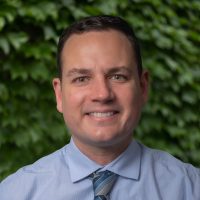We are a community-focused program centered on developing academic surgeons who will be leaders within their specialty and use the most up-to-date practices and evidence-based medicine.
The 910-bed Lakeland Regional Health Medical Center is the primary clinical site for the General Neurosurgery Fellowship Program and provides extensive opportunities for fellows to gain hands-on clinical experience with an underserved population that has a large diversity of pathology and medical needs.
Clinical Program: The General Neurosurgery Fellowship is focused on clinical training in the assessment, surgery, pre-and post-operative management, and long-term-follow-up of patients with complex oncologic and vascular lesions, as well as patients suffering of degenerative spinal conditions, spinal cord injuries and oncological lesion to the spine. The fellow will assess patients in the hospital, ER and office before and after surgery, participate in decision-making, participate in all operative cases, participate in post-operative management of hospitalized patients, and participate in discussions regarding adjuvant therapies at the multidisciplinary boards.
The fellow will participate as an integral member of the multi-disciplinary team that incorporates a neurooncologist, radiation oncologist, neuroradiologist, trauma surgeons, and critical care physicians. The fellow will participate in a robust educational program with multiple in-person and online educational conferences.
The fellow will participate in the weekly educational conferences at Lakeland Regional Health and at the University of South Florida such as: Grand Rounds, cerebrovascular conference, spine conference, neurooncological tumor board, Journal Club, Mortality and Morbidity conference.
The General Neurosurgery Fellowship is designed to prepare the fellow for an academic career. The fellow will develop and deliver presentations on Skull base or spine-related topics for local, national, and international neurosurgical audiences. The fellow will demonstrate skull base surgical techniques to neurosurgeons at all levels of training using the University of South Florida Microsurgery Laboratory in Tampa. They will also serve as a faculty member for the annual Masters’ Course in Skull Base Surgery and will be expected to participate.
The research component of the General Neurosurgery fellowship year is both clinical and basic. Basic research focuses on development of innovative surgical approaches or refinement of existing approaches supported by cadaveric dissection in the University of South Florida Microsurgery Laboratory in Tampa. Analysis and publications of clinical cases and series are also a mandatory component of the research program, which runs concurrently with the clinical program. In preparation for an academic career, preparation, and publication of peer-reviewed and solicited writings are mandatory. Grant submission is encouraged but optional.
The General neurosurgery fellow will be evaluated bi-annually by the Fellowship Director with input from the faculty members of all specialty departments. The fellow will evaluate the fellowship director and the overall program at the completion of the fellowship year.
The fellow will spend 3 days a week in the operating room learning surgical techniques, this will guarantee an exposure of >250 cases in a year.
One day will be spent in the outpatient clinic focusing on the pre and postoperative management of patients.
The fellow will dedicate one day a week for academic/research activities.
Accreditation:
The program is unaccredited.
Certification:
After successfully completing the program, graduates receive a certificate from Lakeland Regional Health Graduate Medical Education to recognize their time with us.

Read Bio
Dr. Davide Marco Croci, born and raised in Switzerland, is fluent in four languages: Italian, French, German, and English. After graduating with Summa Cum Laude from Medical School at University of Basel, he completed his neurosurgery training at the University of Basel in Switzerland, followed by two very competitive CAST approved fellowship programs in both complex spine and Skull Base/Cerebrovascular Surgery at the University of Utah and the University of South Florida respectively. Along with his exquisite clinical skill, his academic credentials are equally. He authored more than 50 peer reviewed publications, he is a frequent reviewer of multiple journals and speaker at national and international neurosurgical conferences. He was awarded multiple research grant, of which the best vascular project from the European Association of Neurosurgical Societies. He is active in the teaching of younger resident and fellows both at the University of South Florida as well as at Lakeland Regional Health, where he act as Fellowship director of the neurosurgical fellowship program and he was awarded the title of “Subspecialist of the Year” by the translational year residents. Since 2023 he is the site medical director of the USF Neurosurgery Lakeland. He was named as a member of multiple associations of which the North American Skull Base Society (where is part of the International Committee), The Congress of Neurological Surgeons, and The European Association of Neurosurgical Societies and the AO Spine.
Specialties:

Read Bio
Dr. Gabriel Flores-Milan, who is fluent in English and Spanish, was born and raised in Puerto Rico. He completed his residency in Neurological Surgery at the University of South Florida, where he was honored with the Fernando L. Vale Golden Apple Resident Teacher of the Year award in 2023. His compassionate and patient-centered care were notable during his residency. He also received the USF Donald A. Smith, MD Humanism Award (Compassion, Respect, Altruism, Humility) in 2022. Dr. Flores-Milan completed an enfolded fellowship in complex spine surgery and finished a post-graduate skull base surgery fellowship, both at the University of South Florida. His outstanding clinical skills match his academic credentials, and he has been elected as a member of the Congress of Neurological Surgeons and the North American Skull Base Society.
Specialties:
Lakeland Regional Health offers a competitive benefits package. Click here to view the benefits package provided to LRH team members.
Beyond our standard tuition reimbursement program, retirement plans, paid time off and a comprehensive health and benefit plan, we also offer the following extended benefits for residents of our Graduate Medical Education Program:
Lakeland, the largest city in Polk County, has kept its small-town personality over the years and yet continues to become a vibrant and growing city. Conveniently located between Tampa and Orlando, Lakelanders have many ways to celebrate the climate, culture and opportunities available both in the local area and throughout Central Florida. World-class shopping, major sports franchises and entertainment venues in Tampa and Orlando and beaches on both the east and west coasts of Florida are all a quick drive away.
Start Date:
July 1
Eligibility:
US and International medical graduates who fulfill the following perquisites:
Medical Licensure:
Fellows will need a Teaching Medical licensure from the Florida Board of Medicine
Submit Applications Here
Please include 3 letters of recommendation.


Our GME programs are affiliated with NSU-KPCOM